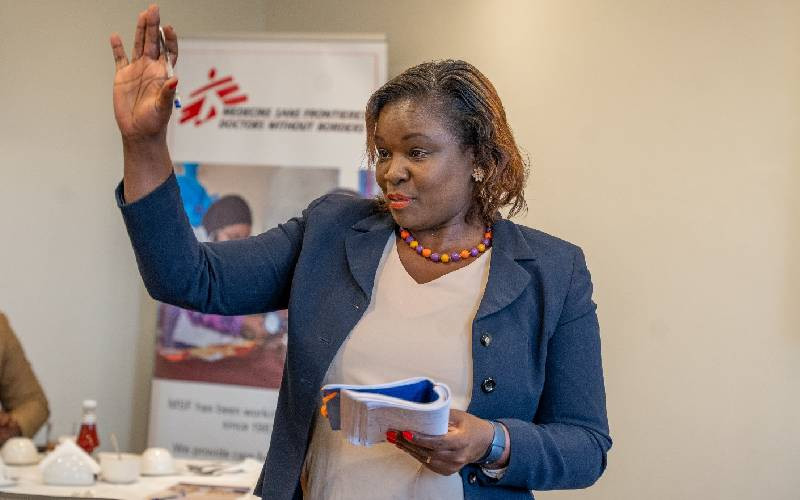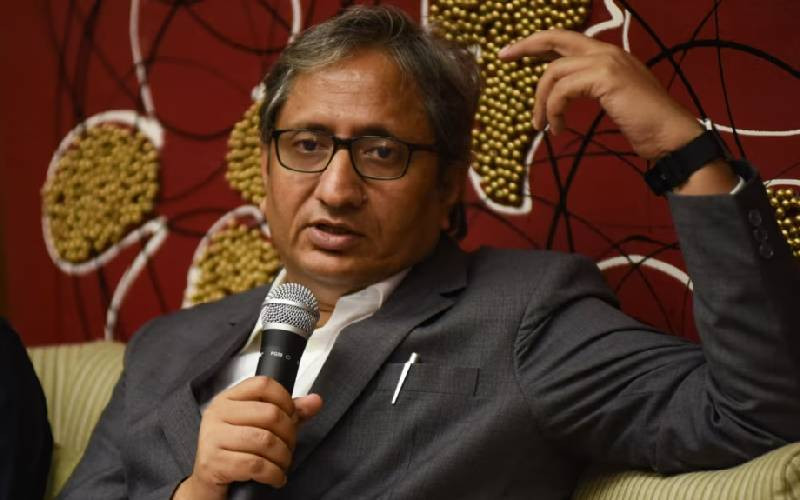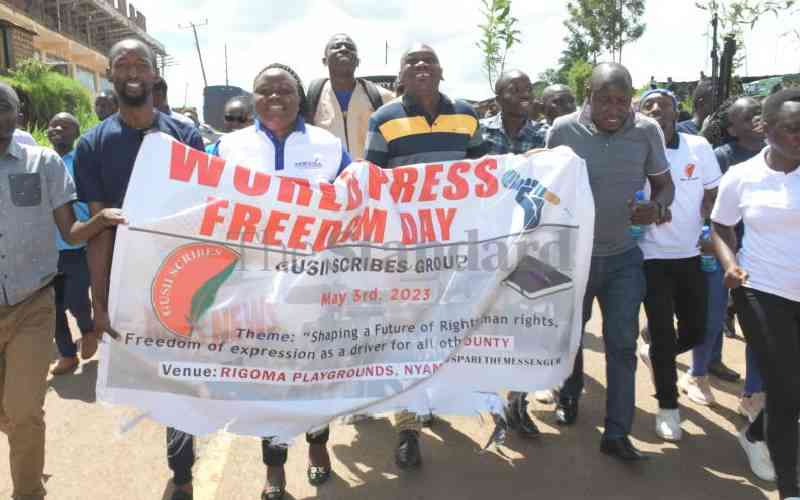Today is World Press Freedom Day. It is another occasion for countries to sit back and examine the state of journalism, and hits and misses in the global clamour for Press freedom.
This year’s focus is on ‘journalism without fear or favour,’ a carefully chosen theme that nudges countries to respect their commitments to Press freedom by removing lingering huddles to free speech.
Indeed as UNESCO puts it, today offers a chance to support freedoms that remain a target for ruthless restraint or abolition in many nations. It is also a day of remembrance for journalists who lost their lives in the pursuit of that juicy story.
This year’s World Press Freedom Day has, however come at a time repression is at its peak in diverse regions. Then there is the Covid-19 crisis that has disrupted lives and economies in a rare scale. Indeed, journalism is at a deep end when it is needed most.
One of the never-ending issues is government interference with the work of journalists. Just this week, Reporters without Borders released the 2020 World Press Freedom Index usually published every year to evaluate the state of journalism in 180 countries and territories. The 2020 index showed that the future of African journalism in 21 countries is under massive threat.
While it has been a mixed bag in Kenya, there is no denying that those who produce news and information work in difficult conditions. Journalists still get death threats while some are physically harmed by security forces and hostile sources.
The threat of censorship still looms large, even despite the safeguards offered by the 2010 Constitution that entrenched rights to freedom of expression and freedom of the media in Articles 33 and 34.
In fact, many would rightly say that the Jubilee administration has showed worrying intolerance for independent media in the seven years it has been in power. The nexus between threats to media and politics in Kenya remains troublingly unrestrained. Kenyans will remember the 13-day television shut down by the Interior ministry under CS Fred Matiang’i soon after the discredited 2017 poll.
Earlier, there was the Kenya Information and Communication (Amendment) Bill, 2013, which contained contentious proposals meant to curtail Press freedom. It fell flat in the face.
There have been several other documented cases of blatant disregard of media freedom. It has not been lost to the media fraternity the implied message in political outbursts by top Jubilee leaders that newspapers are for wrapping meat.
On this global day of celebrating journalism, we reiterate that the media does not exist to pamper the egos of anyone or the government of the day. In fact, the Fourth Estate’s primary role is to check on the excesses of the various arms of government, which, if left alone, could turn against the innocent and well-meaning taxpayers.
At this point in time, we call on the media fraternity to fight relentlessly to remain independent. And they can do this with the support of like-minded Kenyans. The Press does not and will not exit at the behest of governments and leaders who clamp down on free speech and freedom of association to hide their inadequacies.
We acknowledge the fact that Kenya has been standing tall in the community of nations as having progressive laws. Authoritarianism, impunity and abuse of power should not be allowed to jeopardise our vigorous and diverse media. Media stakeholders and civil society groups should speak with one voice in defending these rights and freedoms.
Stay informed. Subscribe to our newsletter
The media primarily exists to educate, inform and entertain. This is an important ingredient for democracy and human rights.
A free media is thus critical in keeping citizens informed about integral issues, be they political, social or economic. Today, we urge journalists to fight on, report the story and stay true to their cause.
 The Standard Group Plc is a
multi-media organization with investments in media platforms spanning newspaper
print operations, television, radio broadcasting, digital and online services. The
Standard Group is recognized as a leading multi-media house in Kenya with a key
influence in matters of national and international interest.
The Standard Group Plc is a
multi-media organization with investments in media platforms spanning newspaper
print operations, television, radio broadcasting, digital and online services. The
Standard Group is recognized as a leading multi-media house in Kenya with a key
influence in matters of national and international interest.
 The Standard Group Plc is a
multi-media organization with investments in media platforms spanning newspaper
print operations, television, radio broadcasting, digital and online services. The
Standard Group is recognized as a leading multi-media house in Kenya with a key
influence in matters of national and international interest.
The Standard Group Plc is a
multi-media organization with investments in media platforms spanning newspaper
print operations, television, radio broadcasting, digital and online services. The
Standard Group is recognized as a leading multi-media house in Kenya with a key
influence in matters of national and international interest.









